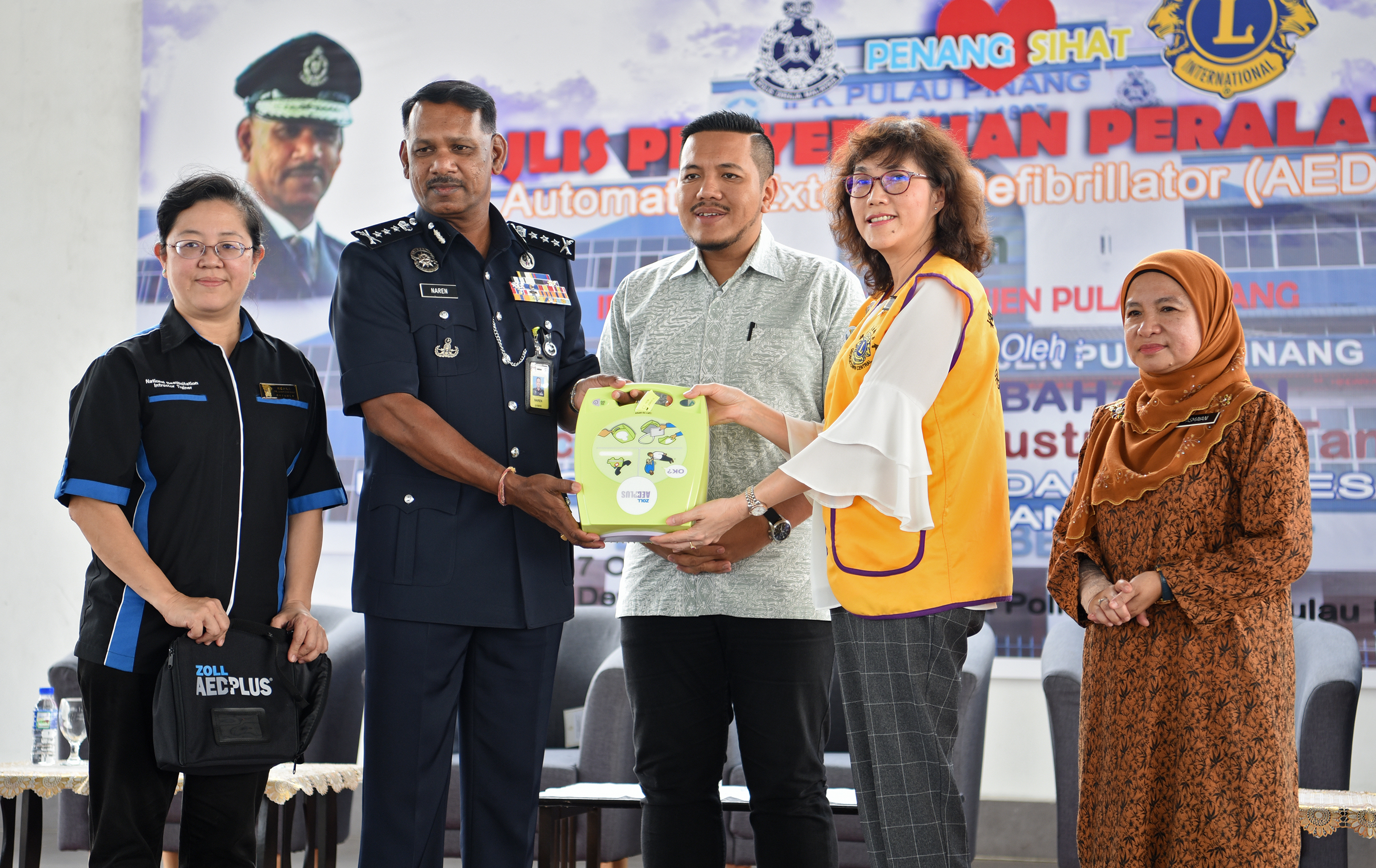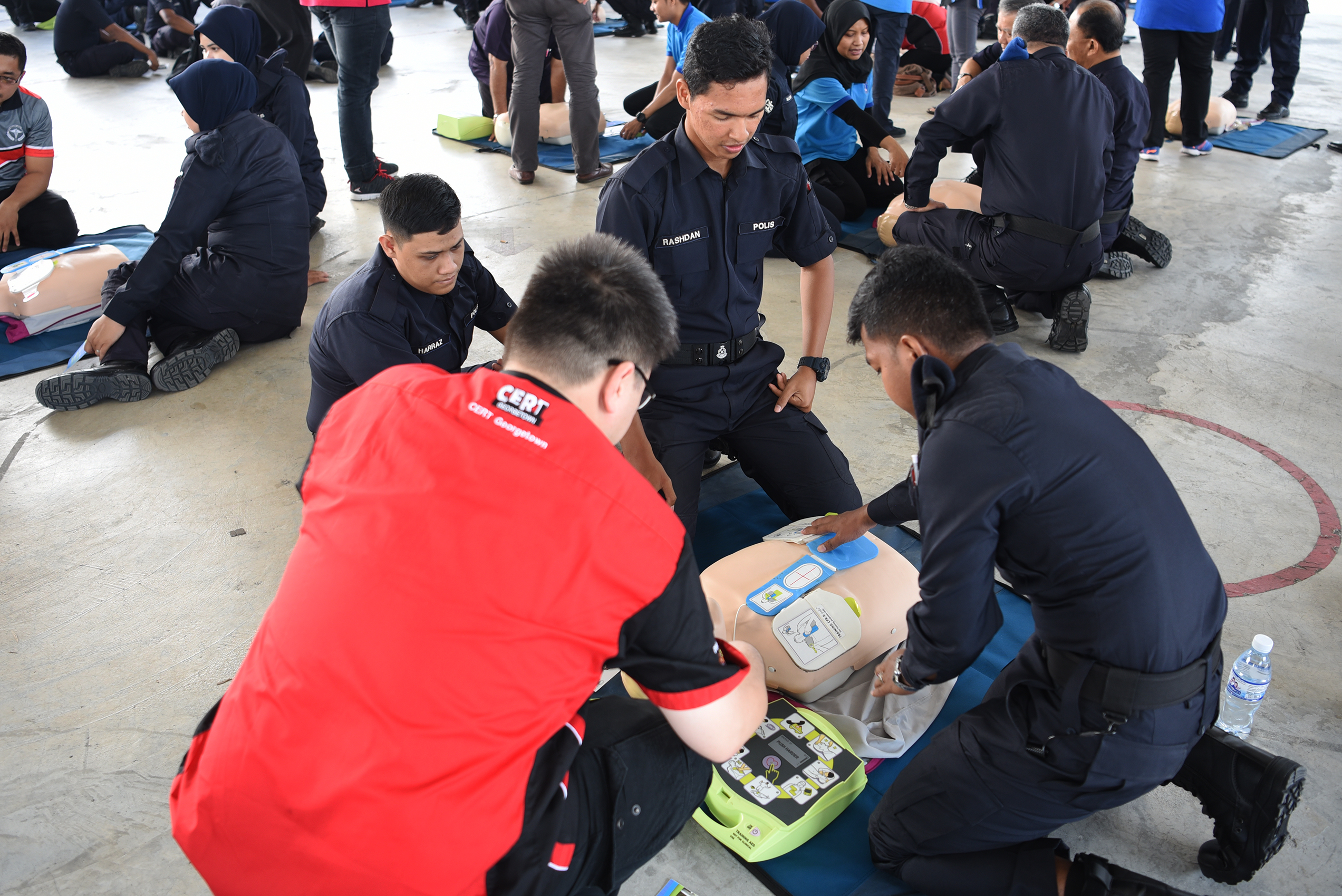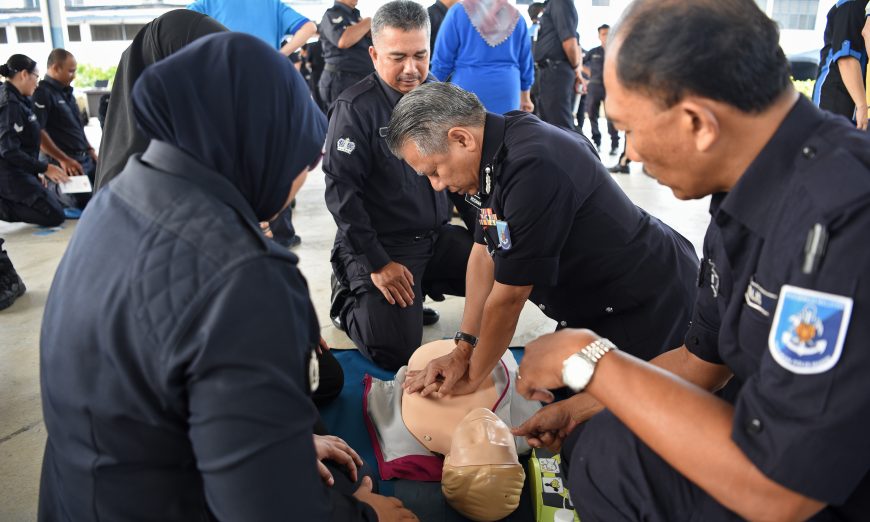FOOD operators who complain that their businesses would be affected by the introduction of a smoke-free zone in Batu Ferringhi are selfish, says state executive councillor Dr Afif Bahardin.
The state Health, Agriculture and Agro-based Industry and Rural Development Committee chairman said the food operators were more interested in making money rather than the health of the people.
“They don’t care about the ill effects of smoking, whether to the smokers themselves or non-smokers,” Dr Afif said in his speech at the ‘Penang Heart Safe Programme with PDRM’ at the Penang police headquarters in Penang Road today.
He called for consistent reporting by the media on the matter, saying that if no fogging activity was conducted by the authorities to curb dengue, there would be complaints but when the state government took action against smoking, it became an issue.
“If the food is delicious, they (tourists) will come – whether they can smoke or not. We want to protect the citizens. No other state government dares to push for this kind of initiative.
“The tolerance level in Malaysia is high. But smokers cannot harm others, including their family members. It’s a policy (to discourage smoking) in the world.”

Dr Afif had said the state would submit an application to the Health Ministry to gazette Batu Ferringhi as a smoke-free zone, the process of which would take three to four months.
It would start from the Penang Floating Mosque and end at Bayview Beach Resort along Jalan Batu Ferringhi.
He said smokers could take a puff at designated areas, but not at Batu Ferringhi’s open spaces, beachfront, eateries, beach clubs, food courts, resorts, bungalows and shopping complexes.
He said smokers would be issued with a compound of between RM250 and RM500 and if they fail to pay up, they could be fined a maximum of RM10,000 or face up to two years in prison if found guilty in court.
“But right now, we want to create awareness among the public through the media. Punitive action will be our last resort.”
Batu Ferringhi is the second area targeted as a smoke-free zone after George Town and Dr Afif said they would later move on to other places, like Bandar Sunway, Bertam, Pekan Nibong Tebal, Bayan Baru and Balik Pulau.
Also present at the ‘Penang Heart Safe Programme with PDRM’ were state police chief officer Comm Datuk T. Narenasagaran, state Health Department director Dr Asmayani Khalib, Penang Heart Safe Programme chairman Datuk Dr Luah Lean Wah and Lion Club of Georgetown 2nd vice-president Toh Kian Beng.
Dr Afif later witnessed the presentation of an automated external defibrillator costing RM10,000 by Toh, on behalf of Lion Club of Georgetown, to Narenasagaran.

He also urged the Federal Government to consider making it mandatory for government offices, complexes and public spaces to instal AEDs.
“The Federal Government should be seriously looking into enacting a law on the installation of AEDS and giving it the same importance as having fire extinguishers in these public places.”
Dr Afif said the rate of survival for a cardiac arrest victim is less than 1% in Malaysia, compared to 25% in Singapore and Taiwan.
The World Health Organisation, he said, recorded 17.9 million deaths due to cardiovascular illness, of which 75% come from developing countries and under-developed countries.
“The average age in this country contracting heart ailments is 58, compared to Thailand’s average of 65 and Singapore’s average of 61. And the fatality rate in Malaysia involving heart diseases has increased to 54% in 10 years from 2007 to 2017,” Dr Afif added.
He said it was important for the police personnel to be taught cardiopulmonary resuscitation (CRP) with the use of AED as they are the first responders.
Narenasagaran agreed that time is of essence in saving a life, hence the police would ensure that their personnel from their multi-purpose vehicle, motorcycle patrol, traffic police, and pondok police squads learn the life-saving techniques first.
“This will raise the chances of saving lives,” he said.
Members of St John Ambulance, Malaysian Red Crescent, Community Emergency Response Team (CERT) George Town and the Penang Hospital were present to guide the Penang police personnel on how to perform CPR using AED.
Dr Luah, who pioneered the programme since 2016, said there are now 62 AEDs in the public places in Penang while there are 20,000 AEDs each in Singapore and Taiwan.
So far, she said about 30,000 people have been trained on how to perform CPR using AED in Penang.
In September this year, she said Kedah had started with the Kedah Heart Safe Programme and Sabah would soon follow suit.
Story by K.H. Ong
Pix by Ahmad Adil Mohamad

